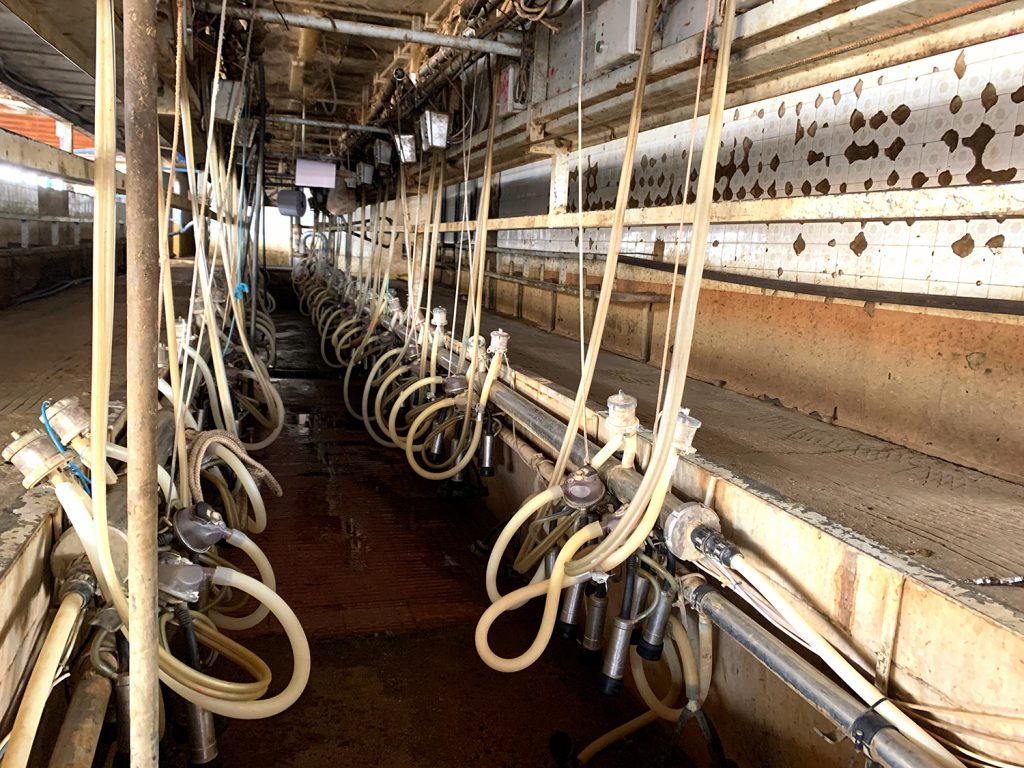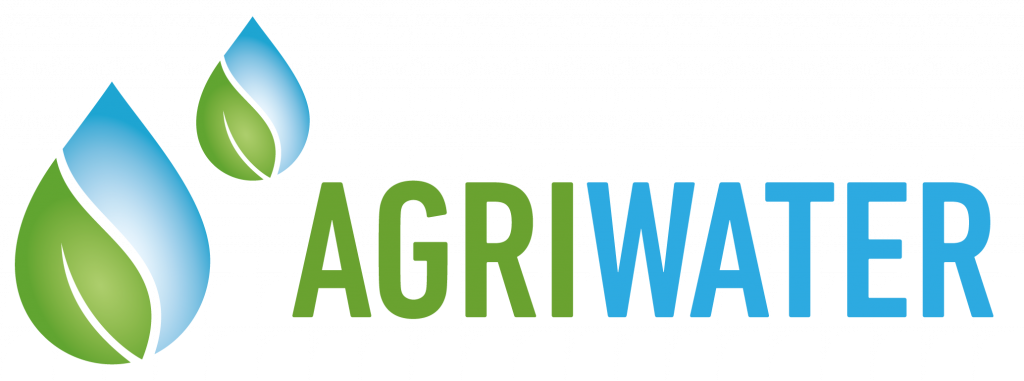Farm area/size of the organisation:
Number of workers:
Farm main activity:
A dairy farm in which the productive breed was changed from the milk-producing Holstein to the Alpine Bruna breed, as a dual use for milk and meat.
The aim of this measure was to better adapt to the climate of the region. In addition, a market-oriented genetic selection was carried out to produce milk with A2A2 beta casein closer to human milk and BB kappa casein more suitable for cheese production.
Heat not only affects the quantity and quality of milk, but it also affects the health status, the frequency and intensity of oestrus, fertility. Therefore, costs increase and income is reduced.
The aim of this measure was to minimise the impact of heat stress on the animals and its economic effects for the farm, as well as to look for market opportunities.
High temperatures lead to higher water consumption by the cow, which reduced the daily nutrient intake, resulting in lower daily production (-20%) and lower quality associated with lower nutrient content (-10% in price).
These effects on production, for 4-5 months of the year, impacted on the sustainability of the farm.
These centres provided highly selected cattle with the advice of Italian geneticists and veterinarians.
Through this genetic study they reduced years of on-farm selection to achieve high standards in milk quality, morphology, life expectancy, productive capacity, etc.
They identified the breeds that could be adapted to the region, some of which were discarded due to import difficulties, morphology, lack of selection and lack of quality.
In order to make the final decision, they visited farms in Austria, Italy, France and Germany, analysing their productivity and their potential adaptation to the high temperatures of Andalusia.
330 pregnant cows and 2 bulls at a cost of €2,000 per animal. To this must be added the whole research and breeding process.
To finance this, the Holstein cows were withdrawn, which made it possible to finance 60% of the investment cost of the changeover.
Initially, they brought 330 6-month pregnant cows and 2 bulls from high genetic farms in Italy and Germany, whose genome guaranteed production with A2A2 beta casein and BB kappa casein.
The transfer was sequential, 3 trips were planned according to the time of gestation, with the aim of guaranteeing staggered births to ensure homogeneity of milk production throughout the year, with stable workloads.
The Holstein is a breed derived from very complex historical selection processes, which makes it very productive, but very sensitive from a health point of view.
The Bruna, on the other hand, is a more rustic breed, less selected, and therefore much more robust and healthier. With the change, health requirements, antibiotics and veterinary care have been reduced.
Previous experience with dairy cows was crucial, as there are no experts who can facilitate the transition between varieties.
They were clear about which breed they wanted and why they wanted it, as well as which genome they wanted to select. Yet they were open to the possibility of success or failure. And above all, they have maintained an ability to learn and adapt to the management needs of this breed.
The Bruna is a less selected breed and therefore less sensitive from a health point of view, which facilitates health management with less use of drugs and antibiotics, thus minimising the possibility of transmission to the marketed milk.
The farm has initiated a process of biological control to combat the presence of flies by introducing a species of flies to fight the existing ones.
Although milk production is in a very delicate situation due to its low price, this farm has started a conversion process that has improved its financial situation thanks to the change from Holstein to Bruna.
The stabilisation of production, the price premium for higher quality, the income from calf meat, the lower health requirements and the change in nutritional needs have made it possible to improve the farm’s profitability.
In this case, the breed change has been a success, to which the planning, the genetic orientation, the search for a differentiated market, the previous experience and the family consensus have all contributed.
For all these reasons, the change from Holstein to Bruna has been possible, which has led to greater production stability, higher quality, and an improvement in the farm’s economic and financial situation.
This farm has its own commercial brand called “Tierra de Brunas” which produces cheeses and dairy products with A2A2 beta casein and lactose-free, obtained naturally without the addition of lactase.
The market potential for lactose and milk protein intolerant people is very important and the opportunity for this company is great.
If the varietal change is produced by crossbreeding with a new breed, patience is required, the Bruna is less competitive than the Holstein and its production may be reduced in the first generations.
Breed change requires adaptability as the behaviour and management required by each breed is often different.
“Today you have to be an entrepreneur before you are a farmer and a farmer before you are a cowherd”.
“The sustainability of a livestock enterprise is difficult, you have to keep abreast of trends, have good management, technify and optimise to increase profitability”.


AGRIWATER project has been funded with the support from the European Commission, with the reference number 2020-1-CZ01-KA204-078212. The content of this website reflects the views only of the author, and the Commission cannot be held responsible for any use which may be made of the information contained therein.

At AGRIWATER we take the protection of your personal data very seriously. Our purpose is to protect the privacy of the data you provide us and to comply with the current regulations on the protection of personal data.
In compliance with the Act 3/2018 of 5 December on the Protection of Personal Data and Guarantee of Digital Rights transposing Regulation (EU) 2016/679, we inform you of the following information about our privacy and data protection policy:
The organization responsible of your data is Asociace soukromeho zemedelstvi Ceske republiky, ID E10133738. This is a non-governmental organization located in Prague, Czech Republic.
Address
Samcova 1177/1
11000
Praha 1
Telephone
+420266710413
+420266710414
Email contact
marketa.sandova@asz.cz
The legal basis for the treatment of your data is the consent of the data subject under article 6.1 a) of the Regulation, as well as the legitimate interest of the data controller under article 6.1 f) of the Regulation.
The data we request from you are adequate, relevant and strictly necessary and in no case are you obliged to provide them to us, but their non-communication may affect the purpose of the service or the impossibility of providing it.
Your data will be kept for the time required for the proper provision of the service offered, as well as to meet the responsibilities that may arise from it and any other legal requirement.
In the course of processing your data, Asociace soukromeho zemedelstvi Ceske republiky may share your data with:
On Projects Advising SL, as web management and maintenance service providers.
The controller retains the right to restrict the rights set forth in Article 23 of the EU Regulation, if such restriction is provided to safeguard, in particular fundamental rights and freedoms and is a necessary and proportionate measure.
If any interested party considers that their data are not being treated correctly, they can send their complaints to the following e-mail address; kristyna.strnadova@asz.cz, Asociace soukromeho zemedelstvi Ceske republiky.
The data subject declares to have acquired all this information.

A cookie is a file that is downloaded and executed on your computer, phone, or mobile device when you access certain web pages. Cookies allow a website, among other things, to store and retrieve information about user’s browsing habits and recognize the user depending on the information they contain and the way they use their computer.
Cookies do not harm your computer and are necessary to facilitate navigation.
Cookies are necessary for our website to work properly. The purpose of our cookies is to improve the user’s browsing experience. They can be used to remember your preferences (language, country, etc.) during navigation and on future visits.
The information collected in the Cookies also allows us to improve the website and adapt it to the individual interests of users, speed up searches, etc.
Analysis Cookies: These, if they are used properly by us or by third parties, allow us to quantify the number of users and thus perform the measurement and statistical analysis regarding the users’ usage of our service.
Advertising Cookies: These, if they are used properly by us or by third parties, allow us to manage as effectively as possible the supply of advertising space on the website, adapting the content of the advertisement to the content of the service requested or to the use you make of our website.
Our cookies do not store information about your personal identification, address, password, credit or debit card details, etc.
The information stored in the website’s cookies is used exclusively by us, apart from those identified below as “third party cookies”, which are used and managed by external entities to provide us with services to improve our own services and the user’s experience when browsing our website.
Third party cookies are mainly used to obtain statistics and to guarantee the payment operations are carried out.
Yes, firstly, you must disable cookies in your browser and, secondly, delete the cookies stored in your browser associated with this website.
You can restrict, block, or delete cookies from this website at any time by modifying your browser settings. This setting is different for each browser. For more details on the configuration of cookies in your browser, please consult your browser’s “Help” menu.
It is possible that some of the website’s features may no longer work if you disable cookies.
These Cookies are used to identify the user during the session, prevent the user from having to repeat authentication processes on the website, speed up some website processes, remember selections made during the session or on subsequent accesses, remember pages already visited, etc.
COOKIES
PURPOSE
DURATION
MANAGEMENT
User identification
They are used to identify and authenticate the user. They also contain technical data from the user session, such as connection timeout, session identifier, etc.
Session
AGRIWATER
Session identification
They identify the user’s http session. They are common in all web applications to identify requests from a user’s session.
Session
AGRIWATER
Navigation status
They help identify the user’s browsing status (login, first page, first access, scroll status, voting status, etc.).
Session
AGRIWATER
These Cookies obtain generic information about users’ accesses to the website (not the content of the same) to subsequently provide us with information about these accesses for statistical purposes.
COOKIES
PURPOSE
DURATION
MANAGEMENT
Google Analytics (__utma, __utmb, __utmc, __utmd, __utmv, __utmz, _ga…)
They allow website statistic’s tracking through the Google Analytics tool, which is a service provided by Google to obtain information about user access to websites. Some of the data stored is: number of times a user visits the website, dates of the user’s first and last visit, duration of visits, from which page the user accessed the website, which search engine was used or which link was clicked, from which part of the world the user accessed the website, etc. The information generated by the cookie about your use of the website will be directly transmitted and stored by Google Inc (a company located in United States). The configuration of these cookies is predetermined by the service offered by Google, so we suggest you consult the Google Analytics privacy page, for more information on the cookies it uses and how to disable them (keep in mind that we are not responsible for the content and accuracy of third-party websites).
Persistent
Third Parties